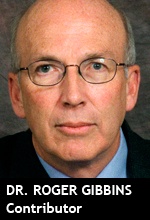This week’s federal election catalyzed change in Canada.
For the first time in more than 40 years we have a government with equally strong representation in Ontario and the west.
In 1973 I moved to Calgary and took up a position in the Department of Political Science at the University of Calgary.
From that time until Monday night, one of the constants of Canadian political life was the failure of any of our national parties to effectively bridge the divide between Ontario and the West.
The consequence was exacerbated and at times exaggerated regional conflict at worst, and a lack of understanding at best.
Now we have a national government in which the Conservatives are the dominant party in both Ontario and across the west. The significance of this change and its potential impact on the nature of Canadian political life and discourse is huge.
At the same time, the election results on Monday night also demolished two truisms of Canadian politics. The first is that it is impossible to win a majority government without support from Quebec.
However, even if the Conservatives had lost all of their seats in Quebec, they would still enjoy a comfortable majority. And, before the next election, the addition of approximately 20 seats in Ontario and the west will further erode the indispensability of Quebec.
It is now possible to have a majority government elected only by what is nostalgically called English Canada.
The second truism is that if such a government could be elected, it would have a traumatic and perhaps fatal impact on Canadian unity.
Imagine, for example, what would have happened if the Bloc had survived the May 2 election, and Gilles Duceppe was on the airways talking about the betrayal of Quebec, about its exclusion from the national government, about sovereignty as the only option left for Quebec.
Instead, the great majority of Quebec MPs are now New Democrats, uneasily crammed within the Canadian party with the greatest commitment to a strong national government in Ottawa.
There is no outrage, but only confusion as to what Quebec’s voice will be in the years to come.
There will be no shortage of moving vans heading to and from Ottawa in the coming weeks, but very few will have western plates.
Of the 113 rookie MPs coming in to replace retired and defeated MPs, only 15 will represent the west.
By comparison 45% of MPs from the rest of the Canada (98 out of 261 seats) are busily filling out change of address forms this week. The balance of federal political experience has shifted heavily to the west as a result.
This impact of the disproportionate amount of experience can’t be overstated – particularly in contrast to the wave of fresh faces and voices now unexpectedly representing many ridings in Quebec.
The advantages associated with pre-existing knowledge of the key issues, familiarity with parliamentary and committee processes, established working relationships with peers and lobbyists, and established staff and offices – or even knowing the location of offices-represents tangible leadership strength for the region’s representatives.
In summary, the change on May 2 went far, far beyond replacing a Conservative minority government with a Conservative majority government.
The political landscape has fundamentally changed. The gap between the west and the east has grown smaller, and we may never go back to where we once were.
Roger Gibbins is the president and CEO of the Canada West Foundation. www.cwf.ca. His column is distributed through Troy Media.



